Video
Sign up for our newsletter
We summarize the week's scientific breakthroughs every Thursday.
-
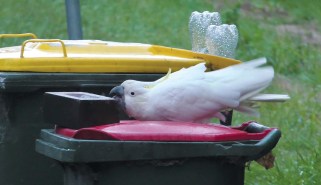 Animals
AnimalsNeed to keep cockatoos out of your trash? Try bricks, sticks or shoes
In Sydney, humans may be in an escalating arms race with cockatoos. People are trying new tools to keep the pesky parrots out of their trash.
-
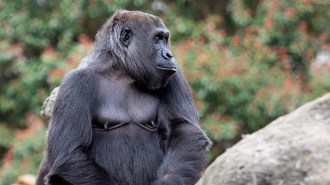 Animals
AnimalsZoo gorillas use a weird new call that sounds like a sneezy cough
A novel vocalization made by the captive great apes may help them draw human attention.
By Meghan Rosen -
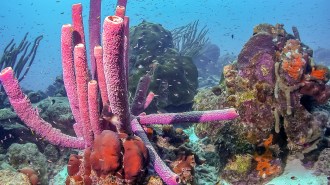 Life
LifeSea sponges launch slow-motion snot rockets to clean their pores
Sea sponges rely on a sneezing mechanism to clear their pores, using mucus to flush out debris. This mucus provides food for other marine life.
By Jude Coleman -
 Astronomy
AstronomyHow James Webb Space Telescope data have already revealed surprises
A distant galaxy cluster’s violent past and the onset of star formation in the more remote universe lie buried in the observatory’s first image.
-
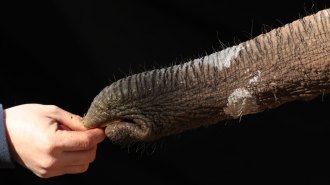 Life
LifeThe top side of an elephant’s trunk stretches more than the bottom
New research on elephant trunks could inspire different artificial skins for soft robots.
By Meghan Rosen -
 Tech
TechThis octopus-inspired glove helps humans grip slippery objects
The human hand, for all its deftness, is not great at grasping slippery stuff. A new glove aims to change that.
-
 Astronomy
AstronomyHere are the James Webb Space Telescope’s stunning first pictures
President Biden revealed the NASA telescope's image of ancient galaxies whose light has been traveling 13 billion years to reach us.
-
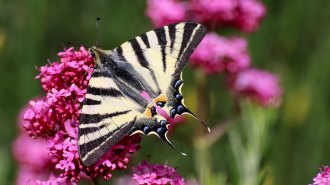 Animals
AnimalsButterflies may lose their ‘tails’ like lizards
Fragile, tail-like projections on some butterflies' wings may be a lifesaver.
By Jake Buehler -
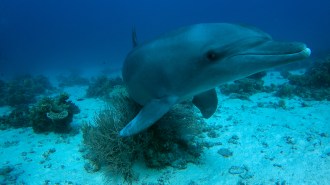 Animals
AnimalsThese dolphins may turn to corals for skin care
For Indo-Pacific bottlenosed dolphins, rubbing against corals and sea sponges that contain antibacterial compounds could help keep skin healthy.
-
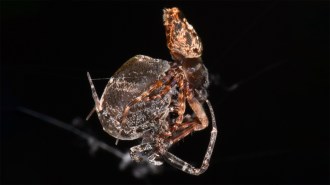 Animals
AnimalsThese male spiders catapult away to avoid being cannibalized after sex
In a leap for survival, male Philoponella prominens spiders leverage hydraulic pressure to extend leg joints and fling themselves off hungry females.
-
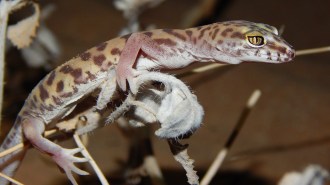 Animals
AnimalsHow a western banded gecko eats a scorpion
New high-speed video details how usually mild-mannered geckos shake and incapacitate their venomous prey.
-
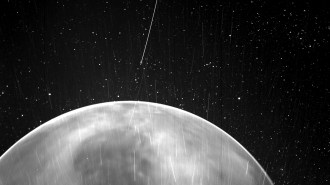 Planetary Science
Planetary ScienceThese are the first visible-light images of Venus’ surface captured from space
Cameras aboard NASA’s Parker Solar Probe managed to peer through Venus’ thick clouds to photograph the planet’s surface.
By Nikk Ogasa